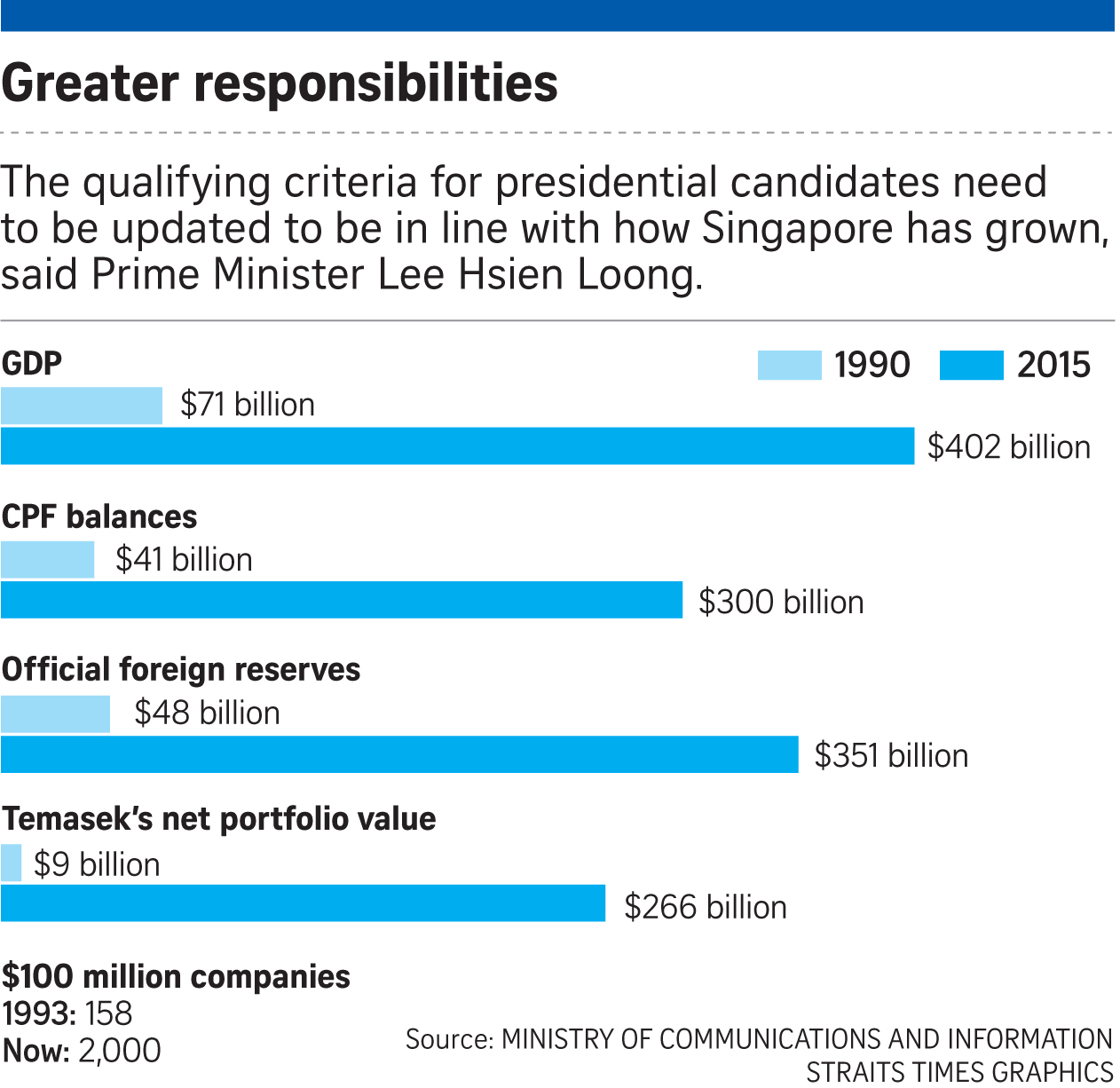Erroneous claims pitched to voters by some candidates during the hotly contested 2011 Presidential Election campaign prompted the Constitutional Commission to go beyond its terms of reference.
To prevent misinformation being bandied about by those in the running at the next presidential election, the panel took the step of proposing that it be an offence for candidates to misinform voters during the campaign.
Apart from requiring candidates to declare explicitly that they understand the constitutional role of the president before they are issued with a certificate of eligibility, the panel wants sanctions to be imposed for breaching election rules.
These should include criminal sanctions, said the commission, without going into specifics. In extreme cases, a candidate’s certificate of eligibility could be revoked.
In 2001, some candidates made promises to Singaporeans that went beyond the constitutional functions of a president.
The commission did not name any particular candidate. However, former civil servant Tan Jee Say pitched a $60 billion “national regeneration plan” to build more hospitals and schools, among other things, while former NTUC Income chief executive Tan Kin Lian said he would introduce state pensions for the elderly.
One needs only to look to Britain’s Brexit referendum in June to see the dangers of misinformation by campaigners.
A total of 52 per cent of the electorate successfully voted for Britain to leave the European Union, but afterwards some expressed regret. They were bitterly disappointed when “Leave” campaigner Nigel Farage admitted that his camp’s pledge to redirect the £350 million (S$629 million) sent weekly to the EU to the National Health Service instead could not be guaranteed.
Especially in a close fight, some candidates may try to “buy” votes predicated on lies or promises that are impossible to fulfil. This is a great disservice to voters, observers tell The Sunday Times.
Most nations or states do not legislate against misinformation during campaigns, but a number do have ground-up initiatives to combat political distortions and lies.
In the United States, for example, independent sites such as FactCheck.org and PolitiFact.com are run by the Annenberg Public Policy Centre and the Tampa Bay Times respectively.
One location that has criminalised misinformation in political campaigns is the state of British Columbia in Canada. Candidates who are found to have made false or misleading statements can be liable to a fine of not more than C$20,000 (S$20,900), imprisonment for a term not longer than two years, or both.
Lawyer Rey Foo, who was among those who gave submissions to the Constitutional Commission, said that establishing rules to prevent misinformation during campaigning “should in fact strengthen the democratic process by ensuring that all candidates campaign on a level playing field”.
He added: “Voters are then clear about the views and position of each candidate and will not be misled by empty promises. In any event, the campaign process for an elected presidency should be different from that of a parliamentary one.”
But are criminal sanctions really necessary? Some analysts do not think so.
While Sembawang GRC MP and lawyer Vikram Nair welcomes the idea of more “dignified” elections, he thinks it would be hard to enforce sanctions, given the short campaign period of nine days.
For one thing, whether a candidate’s statement is considered misinformation has to be determined quickly and punishments meted out soon after. He explained: “If the candidate has already been elected and he’s found to have breached some of these rules later, it could be very awkward.”

Singapore Management University (SMU) law don Eugene Tan said such sanctions, though made with good intentions, could lead to unintended consequences.
“Would applying the rule book be seen as a heavy- handed method to deal with a person who may not be the government’s presumptive choice to be president?” he asked.
“Any attempt to regulate what amounts to misinformation would also be seen as an attempt to interfere with the electoral process.”
Others were also not convinced that sanctions were needed, and said that lawmakers ought to have more faith in the electorate.
“What happened during the 2011 Presidential Election was a sufficient way of dealing with the matter – the Government perceived that some candidates had misunderstood the role of the elected president, so the minister for law pointed this out,” said SMU assistant law professor Jack Lee.
“We need to trust that voters will assess the matter for themselves and decide whether they trust particular candidates or not, based on the statements that they make.”

This article was first published on September 11, 2016.
Get a copy of The Straits Times or go to straitstimes.com for more stories.



























































































